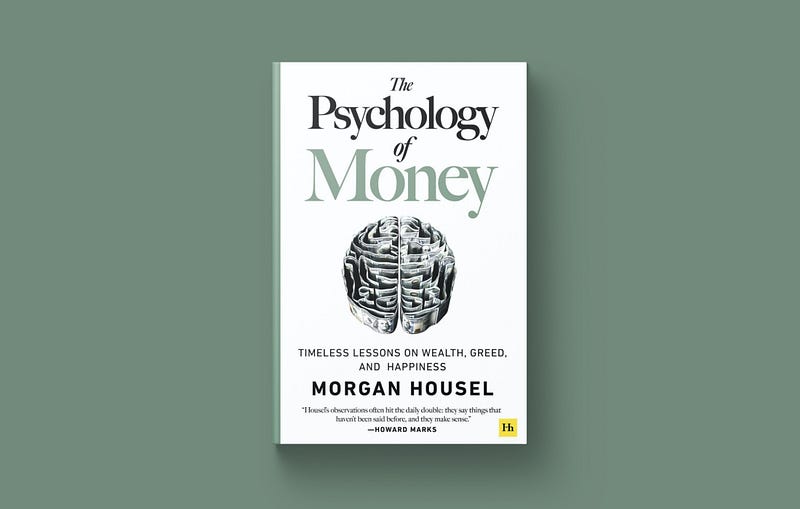# Personal Insights on "The Psychology of Money" by Morgan Housel
Written on
Chapter 1: My Journey with Financial Illiteracy
Reflecting on my experiences, I must admit that I fall into the category of the two-thirds of Americans who lack financial literacy. Growing up, I didn’t have strong financial role models, and my education didn't cover crucial topics such as mortgage rates, ETFs, or the implications of high-interest rates.
I've been working since I was legally permitted to at age 14, but no one ever taught me the vital lessons of saving, investing, and living frugally. I graduated high school in 2001 without a college fund and a strong desire to escape my hometown. This led me to dive into the workforce full-time, surviving on minimum wage and living paycheck to paycheck.

Chapter 2: The Unexpected Layoff
Fast forward to July 2022, when I unexpectedly lost my job during a Teams meeting. To add to the stress, my husband, who had also been laid off, and I faced a rent increase of $600. Finding employment was challenging, making it nearly impossible to secure a more affordable apartment since landlords typically require proof of stable income.
In a moment of desperation, a friend offered me a potential job if we were willing to relocate. Without hesitation, we used our dwindling savings, liquidated my modest investments, and received a generous gift from my parents. We packed our belongings into our Ford Fiesta and embarked on a new journey across the country.

Chapter 3: A Fresh Start with Financial Awareness
Once settled, I realized that despite landing on my feet, we were still grappling with the same financial issues as before. Our savings were gone, credit card debt continued to loom, and we remained in a paycheck-to-paycheck cycle. It became clear that not only did our surroundings need to change, but my financial habits also required reevaluation.
This realization led me to "The Psychology of Money: Timeless Lessons on Wealth, Greed, and Happiness" by Morgan Housel. Housel's book provides a collection of stories, data, and insights into the many ways we navigate our finances.
In this engaging visual summary, Housel shares key concepts from his book, making financial literacy accessible to everyone.
Housel's non-judgmental approach reassured me that I wasn't alone in my financial struggles. He emphasizes, "We’re not crazy; we’re all just newbies," reminding readers that our financial decisions stem from personal experiences that can be confusing.
The full video provides further insights into the fundamental principles of financial understanding, encouraging viewers to reflect on their own experiences.
Chapter 4: Lessons Beyond Money
Housel's insights extend beyond finances, offering wisdom applicable to our relationships and personal growth. He encourages humility during good times and compassion during tough times, emphasizing that kindness and humility can lead to the respect and admiration we seek.
By the end of the book, I felt a sense of relief in realizing that I was not alone in my financial journey. Housel reassures us, “Nothing is as good or as bad as it seems,” suggesting that financial challenges are often temporary and solvable.
This book not only provides pathways to financial literacy but also promotes personal development. If you're looking to enhance your understanding of money, I highly recommend adding this title to your reading list. You can find Housel’s book on Amazon, or consider supporting a local bookstore like Semicolon Books in Chicago for your purchase.